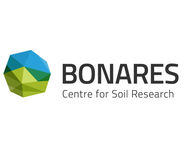CO2 certificates for carbon sequestration in soils: methods, management practices and limitations Text (2020)
Wiesmeier, M., Mayer, S., Paul, C., Helming, K., Don, A., Franko, U., Steffens, M., Kögel-Knabner, I.
BonaRes Series, (),
doi:https://doi.org/10.20387/bonares-ne0g-ce98
Abstract
Agricultural soils have a great potential for carbon (C) sequestration due to the build-up of soil organic matter (SOM), which consists of about 58% C. Positive efforts in SOM management could therefore make a significant contribution to climate protection. For farmers, CO2 certificates for the build-up of soil organic carbon (SOC) represent an additional incentive to implement SOM-enhancing management measures. These CO2 certificates are issued by private initiatives and companies in the voluntary CO2 market. Especially in the field of agriculture, certificate trading for sequestered C in agricultural soils is currently growing in the German-speaking countries. In order to contribute to climate protection, certain criteria must be met when issuing certificates. In practice, however, minimum scientific standards have so far been given little consideration. In this study, recommendations are given regarding the quantifcation of SOC (sampling, analytics, SOC stock calculation), an evaluation of agricultural practices for C sequestration, as well as information on general limitations regarding climate protection via CO2 certificates. Generally, CO2-certificates can give a positive impulse for farmers to deal with sustainable cultivation and SOM supply of their soils. Since SOM is a key property for many soil functions and not least soil fertility, every effort to increase SOM is important. Farmers who are interested in building up SOC should therefore receive comprehensive support and advice on site-specific and farm-specific options for the sequestration of C in their soils.
